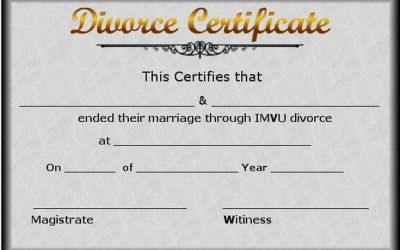Court Marriage for Muslims: Interfaith Marriages and Legal Options in 2025
Table of Contents ▼
Can a Muslim marry a non-Muslim in civil court? Let’s explore the possibilities and challenges of interfaith civil marriages.
The question, “Can Muslims marry non-Muslims in civil court?” arises frequently among couples from different religious backgrounds. Many are uncertain about their legal rights and the process, especially when the marriage involves a Muslim partner. While religious traditions often shape our understanding of marriage, court marriage for Muslims provides a legal framework that transcends religious restrictions in many countries.
In this blog, we will delve into the world of court marriage for Muslims, exploring the practical steps, legal considerations, and religious guidelines for Muslim/non-Muslim unions.
Understanding Court Marriage for Muslims
A court marriage for Muslims is a legal union recognized by the state, not by a religious institution. For couples where one partner follows Islam and the other does not, this provides a pathway to marriage that avoids the constraints of religious marriage rules, which may prohibit interfaith unions.
This distinction is crucial because religious marriages are conducted in line with theological doctrines, while court marriage for Muslims operates under the legal framework of the state. For Muslim and non-Muslim couples, this means that the marriage is legally binding, ensuring recognition and protection under the law.
Don’t know about the court marriage cost? Click Abu Dhabi Court Marriage Fee to learn more about it.
Legal Frameworks Across Different Jurisdictions
Marriage laws differ widely across the globe, and this variance can create challenges for Muslim/non-Muslim couples. Some countries have updated their laws to accommodate interfaith marriages, while others still impose restrictions based on religious grounds.
A noteworthy change in recent years has been in the UAE, where civil marriage laws have been reformed to allow Muslim and non-Muslim couples to marry under civil law, rather than Sharia law. This shift has provided Muslim and non-Muslim couples in the UAE with more options for legally formalizing their union. Such reforms have made interfaith marriages more accessible, but each jurisdiction has its own requirements and rules.
It’s important for couples to be aware of these differences and understand the specific legal landscape of the country where they plan to marry.
Religious Considerations vs. Legal Realities
Although court marriage for Muslims is increasingly accessible, Islamic jurisprudence does have specific rules regarding interfaith marriages. These guidelines, while varying between schools of thought, generally include:
- Muslim men are allowed to marry women from Abrahamic faiths, such as Christians and Jews, who are referred to as “People of the Book.”
- Muslim women, however, traditionally face stricter limitations and are expected to marry Muslim men, according to the more conservative interpretations of Islamic law.
These religious considerations can be seen as a potential obstacle for Muslim/non-Muslim couples seeking to marry. However, court marriage for Muslims does not require adherence to religious law, which makes it a viable solution for interfaith couples wishing to formalize their marriage legally.
Practical Considerations for Muslim + Non-Muslim Civil Marriages
Couples looking to marry through court marriage for Muslims should also consider several practical matters before embarking on their journey:
Documentation Requirements
For a court marriage for Muslims, several key documents are typically required, including:
- Valid passports and IDs
- Birth certificates (often apostilled or legalized)
- Certificates of no impediment or proof of single status
- Divorce decrees if applicable
- Translations of documents if necessary
Missing or incorrect documentation can delay the marriage process or even prevent it. It’s important to work with an experienced consultant who can help ensure that all the required paperwork is in order.
Legal Implications
Court marriage for Muslims also creates several legal implications that couples should be aware of, such as:
- Property rights and inheritance laws
- Child custody rights
- Divorce proceedings and related legal processes
- Tax benefits and liabilities
- Recognition of the marriage in the couple’s home country
Consulting with legal professionals familiar with both the marriage jurisdiction and the couple’s country of residence can help ensure that both parties fully understand their legal rights and obligations.
Planning Timeline for Civil Muslim Marriage
When planning a court marriage for Muslims abroad, it’s essential to start early to allow sufficient time for legal documentation and requirements. The recommended timeline is as follows:
- 3-6 Months Before: Begin researching the marriage jurisdiction and gathering initial documents.
- 2-3 Months Before: Select the jurisdiction and begin the process of document authentication.
- 1-2 Months Before: Submit your applications and confirm travel arrangements.
- 2-4 Weeks Before: Double-check all requirements with local authorities.
- Arrival: Plan to arrive a few days before the ceremony to resolve any last-minute issues.
Starting the process early will help minimize the chances of unexpected delays or issues.
FAQs
Will our court marriage for Muslims be recognized when we return home?
Recognition of a court marriage for Muslims performed abroad varies depending on the couple’s home country. While most nations recognize legally performed marriages abroad, some may require additional registration or may not recognize marriages that contravene local laws.
Can we include religious elements in our civil ceremony?
Yes, most civil ceremonies allow couples to incorporate religious or cultural elements after the legal portion is complete. Many couples personalize their wedding with vows or symbolic readings while ensuring they meet the legal requirements of the jurisdiction.
What if our families disapprove?
Family disapproval is a common challenge in interfaith marriages. Navigating this can be difficult, but working with experienced consultants can provide couples with strategies to find compromises that respect both family concerns and the couple’s wishes.
Conclusion
Court marriage for Muslims offers a practical and legal solution for Muslim and non-Muslim couples wishing to marry. While there may be challenges related to family expectations, legal frameworks, and religious principles, many couples successfully navigate these hurdles with the right guidance.
By starting early, ensuring proper documentation, and consulting with legal and marriage experts, couples can focus on building their future together, without being bogged down by bureaucratic obstacles. If you are considering a court marriage for Muslims, reach out to our team today for expert advice and support.



